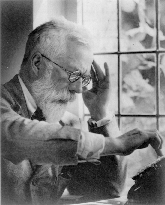|
| Français |
| Home |
| NPCDS Projects |
| Workshops & Training Events |
| Contact Us |
| Partners |
SUMMER
WORKSHOP ON
MODERN
APPLIED METHODS IN BIOSTATISTICS
at the University of Toronto, Medical Science Building
August 14 -17, 2006 -- 9 AM to 5 PM
Director: Paul N
Corey
Co-directors: Jamie Stafford and Wendy Lou
Lecture 7: AN INTRODUCTION TO THE BOOTSTRAP
Dr. Jamie Stafford, Professor Public Health Sciences, Director of
the National Program Complex Data Sets
.This session gives an introduction to a re-sampling method called the Bootstrap. Emphasis is placed on replacing mathematical rigor with computing in the context of both familiar and complex problems. Methods are motivated by the need to analyze data simply. An outline of material to be covered is as follows:
1. Motivation and a general framework: the sample mean and correlation
coefficient.
2. Simple re-sampling is seemingly complex problems.
3. More complicated data structures.
4. Other uses of the bootstrap: from bias estimation to hypothesis testing
and calibration
Recommended Text: Efron, B. and Tibshirani, R. (1993) An introduction
to the bootstrap. Chapman and Hall, New York.
Instructor:
Dr. Jamie Stafford
Jamie Stafford is a Professor in, and the Associate Chair of, the Department
of Public Health Sciences at the University of Toronto where he has his
primary appointment. He is also an active member of the Department of
Statistics where he has his secondary appointment. He received his PhD
from the University of Toronto in 1992 and pursued postdoctoral studies
at both Oxford and Stanford Universities. He held a faculty appointment
at the University of Western Ontario before joining the University of
Toronto in 1999. He has had numerous Visiting Professor appointments at
prestigious institutions around the globe including the University of
Chicago in 1997, Stanford University in 1999 and Ecole Polytechnique Federale
de Lausanne in 1999. He is the current Director of the National Program
on Complex Data Structures (NPCDS).
Jamie is responsible for groundbreaking research in the development of symbolic algorithms for statistical inference. The algorithms have tremendous impact on theoretical developments in statistics, as they are instrumental in eliminating 100's of pages of tedious algebra associated with contexts where lengthy derivations are required. By exploiting a common structure to such derivations the algorithms become quite general and are widely applicable to seemingly disparate areas of research. Jamie's research in this area ultimately led to the publication of a research monograph with Oxford University Press. Jamie has made other fundamental contributions to statistical foundations in robustness, survey methodology and missing data problems common in the health and environmental sciences.
He is a Fellow of the International Statistical Institute and a recent winner of the Premier's Research Excellence Award. He has served on many committees for the Statistical Society of Canada and other societies. For two years he played a major leadership role as Chair of the Grant Selection Committee for Statistics at NSERC.
